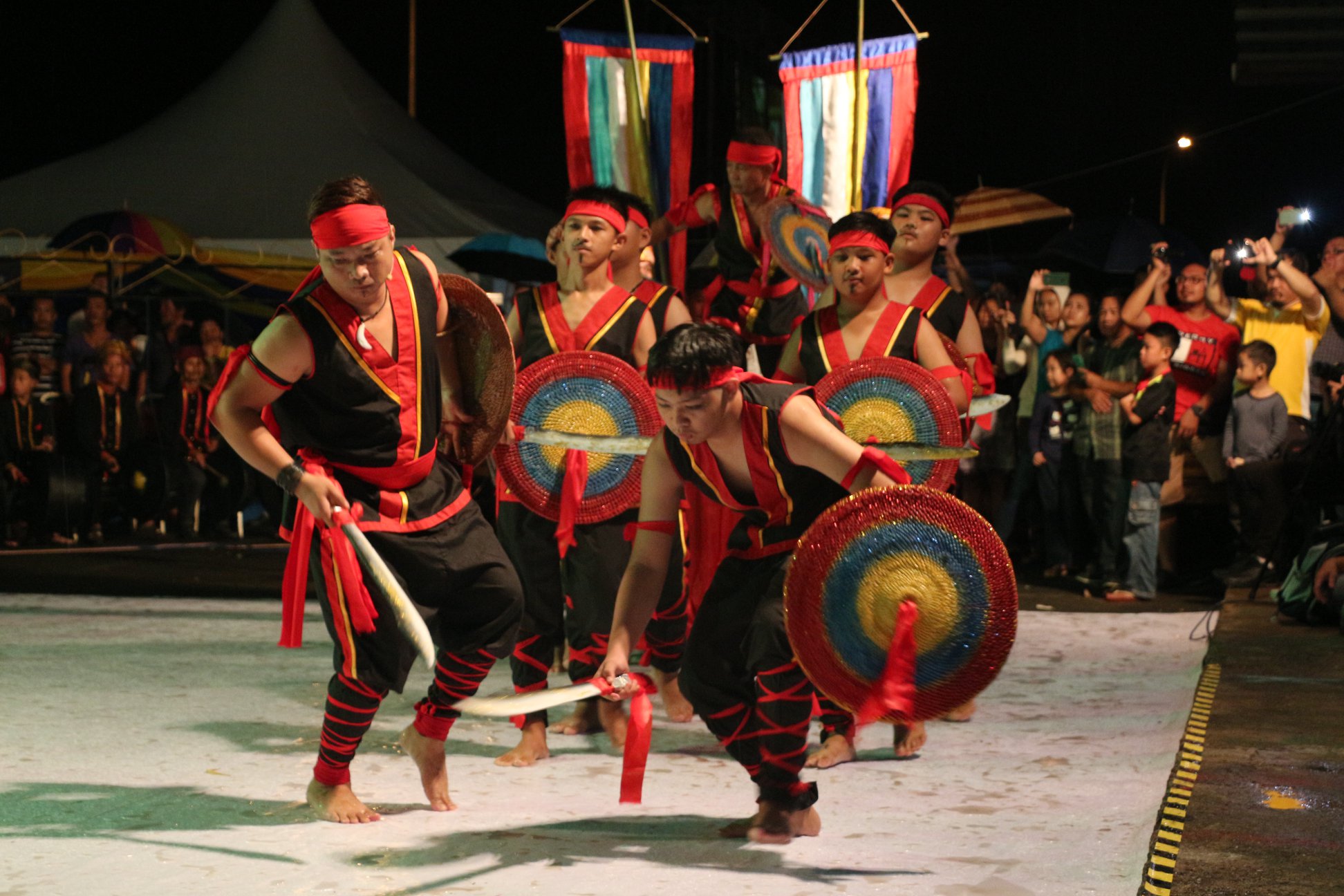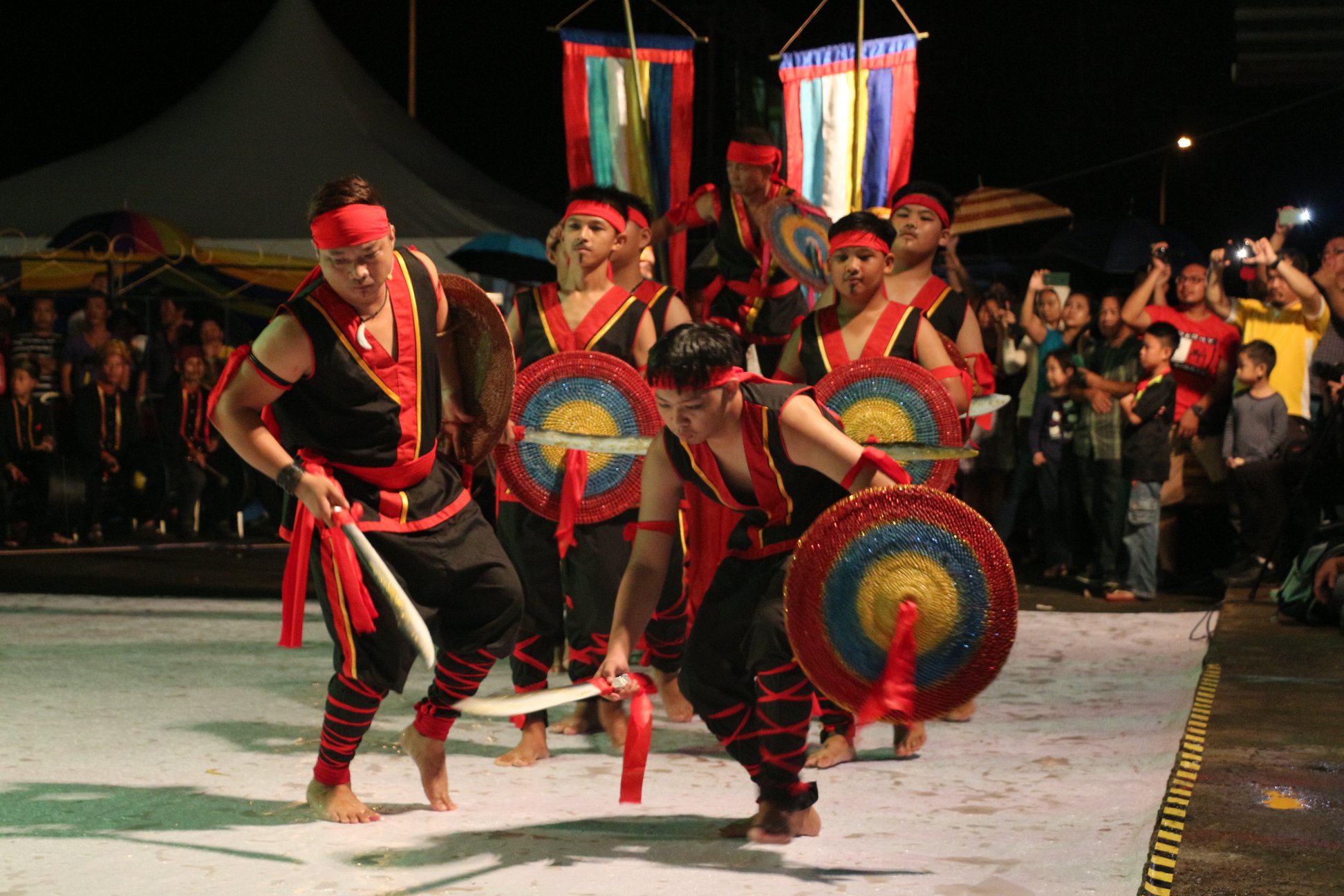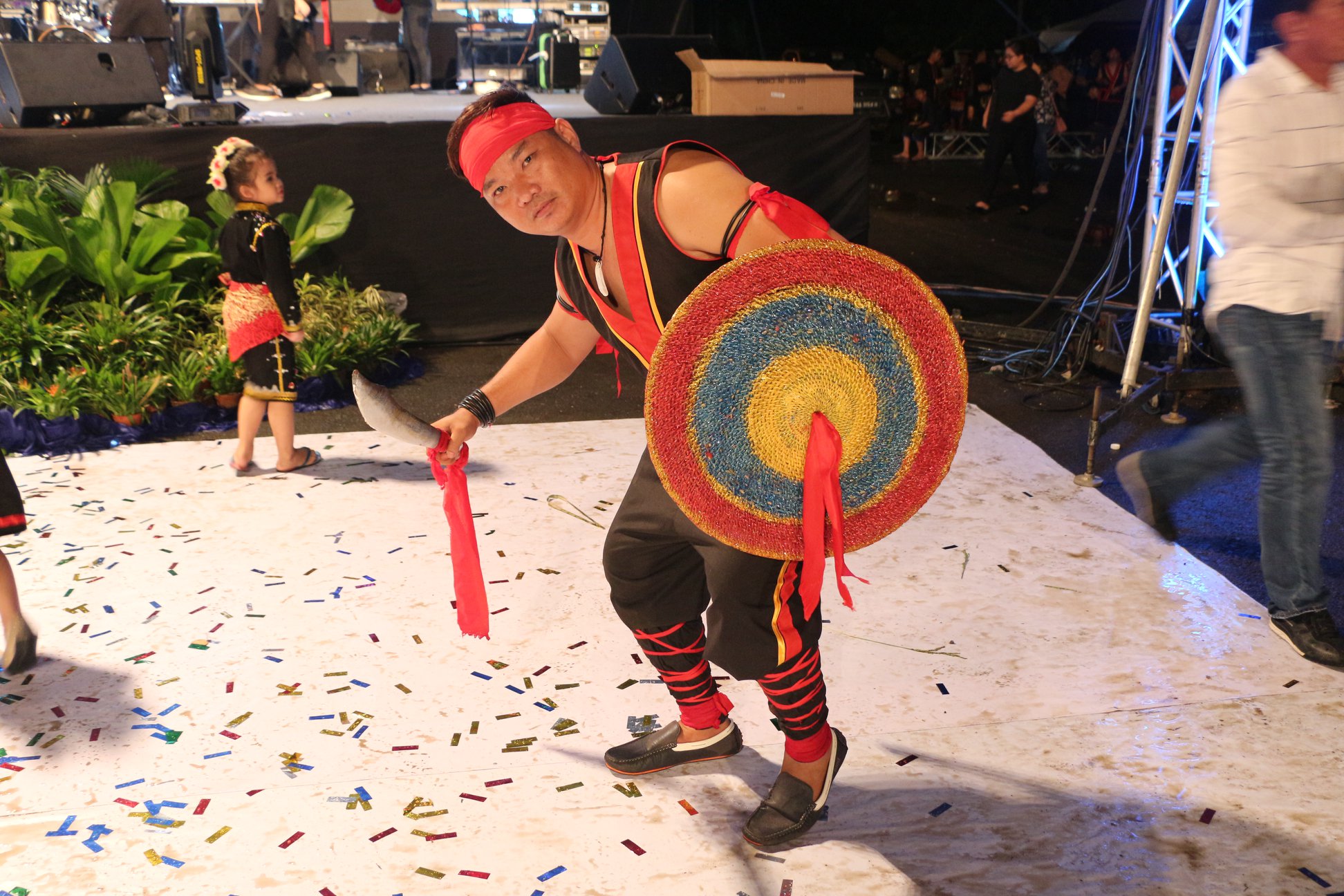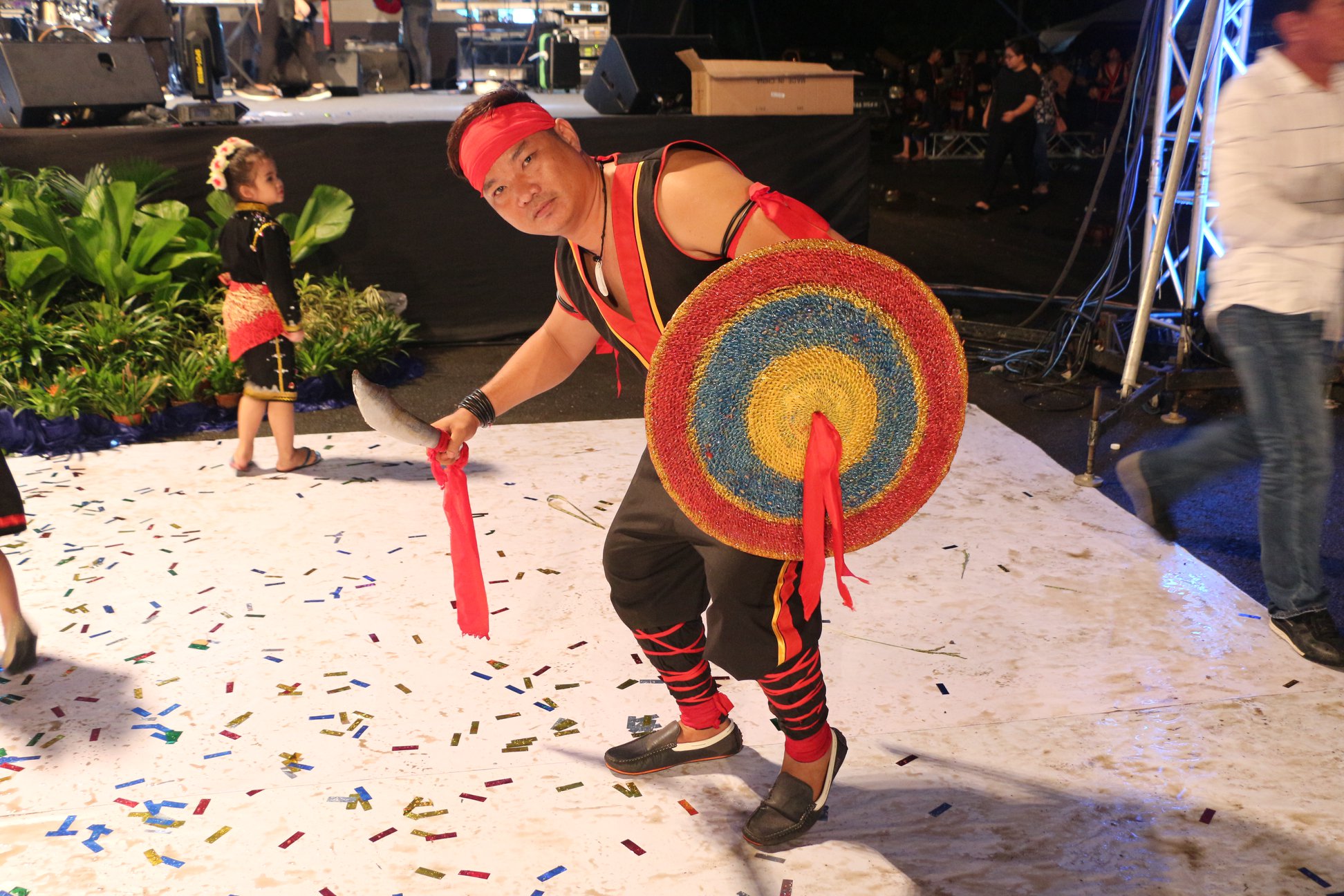ARTS AND CULTURE INFORMATION GATEWAY
Immerse yourself in the colorful world of art and culture! From traditional heritage to contemporary works, discover uniqueness that reflects the nation's identity and identity
TARIAN BAKANJAR
Picture
4
Video
No record
Today's Visitor
36
Number of Visitors
1658
Introduction and history
Bakanjar is a traditional dance from the Dusun Tatana tribe in the Kuala Penyu, Sabah. This dance reflects the art of self-defence and bravery, making it a form of war dance in the Tatana culture. It is performed exclusively by men, showcasing dynamic and symbolic movements, and is often presented at various events, especially during wedding ceremonies. In addition to symbolising the spirit of heroism, Bakanjar also serves as a tribute to the traditions and heritage of the Tatana ancestors, inspiring the annual Odou Bakanjar Festival, celebrated by the Dusun Tatana community in the Kuala Penyu district.
Generally, the Bakanjar dance is specifically performed as a welcoming gesture for guests and newlyweds. It is presented as a symbolic opening to celebrate formal events or weddings. However, in recent times, the function of the Bakanjar dance has expanded, becoming a mandatory performance in cultural and folk festivals, particularly the Odou Festival and the Kaamatan Festival, celebrated by the Momogun ethnic community in Sabah.
During this dance, male performers wear the traditional attire of the Dusun Tatana tribe, known as "Sira Dambia". This black outfit typically includes a shirt with a pocket adorned by a red handkerchief. In some performances, a sleeveless black shirt is worn instead, featuring a crossover design accented with red fabric and gold trimming around the neckline, and is secured at the waist with a red sash.
The dancers' heads are adorned with a "Sigar" a traditional headgear tied with a tail-like knot at the back. Alternatively, some dancers wear a red cloth tied around their heads. This performance is further distinguished by the use of two props: the "Taming", a shield crafted from rattan or Silad leaves reinforced with plywood, and the "Pinadang", a wooden sword.
The musical accompaniment for this dance consists of the kulintangan and three types of gongs: two large gongs producing low-pitched tones and a smaller gong, known as the canang, producing high-pitched tones.
The movements in this dance primarily depict self-defence techniques and are performed in pairs, with groups of two to four male dancers or more, always arranged in multiples of two. Each dancer faces their partner, wielding the Pinadang and Taming. The choreography is characterized by predominantly lateral movements and circular formations. At specific moments, one dancer thrusts their Pinadang toward their partner, who deflects it with their Taming.
Dr. Monih Epin. Persatuan Kebudayaan Tatana Sabah. P.O. Boc 71, Kg. Bundu Batu 4, 89747 Kuala Penyu, Sabah.
Mdm. Jainah Ngoai. Kumpulan Penari Limbai Karamaian. Kampung Kelampun. Jalan Beaufort - Menumbok, 89740 Kuala Penyu, Sabah.
Mr. Roland Raymond. Kumpulan Penari Limbai Karamaian. Kampung Kelampun. Jalan Beaufort - Menumbok, 89740 Kuala Penyu, Sabah.
Reference Source
Kitingan, J., P. (2012). Kadazan Dusun. Institut Terjamahan & Buku Malaysia. Kuala Lumpur
Shafiia, A. H., Ishakb, S., Hassanc, H., Ghouse, M., & Beguma, M. (2016). Babalian and community rituals of Dusun Tatana Ethnic in Sabah, Malaysia: A preliminary study. In International Soft Science Conference.
Sri Ningsih Sukirman, & Patricia Jipoh. (2023). Elemen Penyokong Persembahan Tarian Sayau Moginum, Dusun Tatana, Kuala Penyu, Sabah : Supporting Elements Of Sayau Moginum Dance Performance, Dusun Tatana, Kuala Penyu, Sabah. Jurnal Gendang Alam (GA), 12(2). https://doi.org/10.51200/ga.v12i2.4286
Location
State JKKN Contact Information
Puan Nurshahrinna Syahrial
Cultural Officer
Jabatan Kebudayaan dan Kesenian Negara, Sabah
Kompleks JKKN Sabah,
Jalan Tasik off KM4 Jalan Penampang,
88200 Kota Kinabalu
SABAH
088-205070
Use the form below to contact the Informant/Figure/Editor/Researcher directly. We will respond to your inquiry as soon as possible!

 Kumpulan Penari Limbai Karamaian. Kampung Kelampun. Jalan Beaufort - Menumbok, 89740 Kuala Penyu, Sabah.
c) Nombor Telefon: 012-723 7697
Kumpulan Penari Limbai Karamaian. Kampung Kelampun. Jalan Beaufort - Menumbok, 89740 Kuala Penyu, Sabah.
c) Nombor Telefon: 012-723 7697







